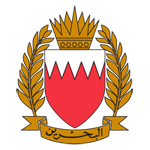Emergency Medicine Department
Emergency Medicine Department
The Department of Emergency Medicine at King Hamad University Hospital is open 24/7 to receive any medical illnesses including trauma with; 45 adult and pediatric beds, Radiology Unit, and Ambulance Unit with Helipad.
A qualified, licensed, and experienced team of nurses and physicians will assess patients in an efficient manner and will start the management process by triaging using the Manchester Triage System, which is a 5-color triage level to prioritize the patients according to their illness severity. Our physicians and nurses are certified with the American Heart Association (BLS, ACLS, PALS) and the American College of Surgeons (ATLS, ATCN) courses in addition to the Manchester Triage System workshop.
Further management will be carried out in the designated sections in the department according to the triage level; Red (Resuscitation/Trauma Bay), Orange area, Yellow area, Green and Blue in Fast Track Unit. Pediatric patients are seen separately in the emergency pediatric unit.
The department is supported with a wide list of emergency medications (194 items and 17 antidotes), and the state of the art equipment (video laryngoscopy, ultrasound machines, rapid IV infuser, tonometer, etc.) to carry out simple to advanced procedures. Point-of-care testing also available to speed up the diagnoses and treatment decisions in certain clinical scenarios (this include; serum glucose, haemoglobin, electrolytes, ketones, Troponin-I, and blood gas). The Department can activate any of the following teams if indicated; Trauma Team, and Stroke Team.
Since 2014 and up-to-date, the Emergency Medicine Department continued to be recognized as a training site for both the Saudi and Arab Board Programs. In 2019, the department reached an annual census of more than 93,000 patients, with an admission rate of 9%, and achieved full accreditation by the National Health Regulatory Authority (NHRA), and the Joint Commission International (JCI).
To face the international and national spread of COVID-19 pandemic, the department built two separate COVID-19 triage tents at the department’s entrance, and allocated 12 beds, for holding and managing the suspected cases till they are being transported to designated quarantine facilities in the Kingdom. All staff were trained on assessing, isolating, and swabbing any suspected cases using the personal protective equipment (PPE).
What to expect?
When you arrive at the Emergency Department, you will be seen as efficiently as possible. Here are few tips on what to expect during your visit.
Quick Registration
You will be asked for basic information by the receptionist that allows us to enter you into our electronic database.
Triage
A triage nurse will obtain your vital signs such as; pulse, respiratory rate, temperature, blood pressure, pain scale, and glucose level. Our goal is to evaluate you as quickly as possible according to the Manchester Triage System which prioritize patients as per their clinical presentations. Also, a triage physician is added to accelerate the process and to assure that the patient’s condition is stable and fit to be triaged away.
Rapid Medical Evaluation
You might be seen by the triage team to perform a rapid medical evaluation to allow us to assess you more quickly.
Patient care room
Here you will see an emergency physician and nurse who will ask you more in-depth questions, examine you, and start any medical orders or tests. They will also explain the possible medical causes of your complaint and the management plan.
Management Time
The length of your visit depends on your clinical presentation and the types of medical orders or tests that have been ordered for you. On the average, lab work takes two to three hours to complete. Regular X-rays usually completed in one hour or less. A special imaging (e.g. CT scan) studies takes much longer. Sometimes, your condition needs to be assessed by another medical or surgical specialities, if this happen the on-call physician will be called to come and assess you.
Going home
The emergency physician or the on-call physician will inform you about the test results, and if you are ready for discharge. You will be given discharge instructions specific to your diagnosis. Be sure to follow the instructions carefully, including getting your prescription and taking it as instructed. Also, it is important that you follow up with your own primary healthcare center or the clinic appointment listed in your discharge instructions.
Being admitted
If you need to be admitted to the hospital, you will be informed by the emergency physician and the on-call physician. Once the admission order is entered, our staff will begin to find an inpatient room for you, and you will be moved to that room. However, there may be some delay in moving you to an inpatient room because the number of patients already in the hospital.






